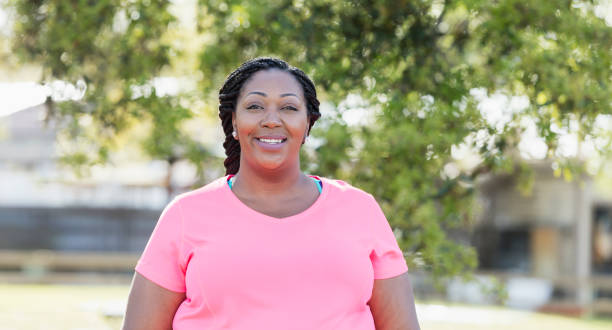
Menopause is the end of reproductive years when women cease having periods. This usually happens between 45 and 55, although it varies.
Vasomotor symptoms (VMS) such as hot flashes and weight gain are classic menopausal symptoms, but there are more you may not know about.
"Perimenopause may start up to a decade before menopause, with the most evident indicator being abnormal menstruation patterns," says Dr. Monica Grover, OB-GYN, and VSPOT's chief medical officer. "As a consequence, some early indicators of menopause may be ignored as [people] stay in the confused and chaotic condition of monthly cycles around this time."
Perimenopause and menopause symptoms may not be obvious:
Decreased Libido
Dr. Anat Sapan, board-certified OB-GYN, and menopause specialist, says hormone fluctuations might lower sex desire. "This is incorrectly ascribed to a change in relationship troubles, weariness or other circumstances, leading to the overlooking of lower libido as a peri/menopause symptom."
Pandia Health OB-GYN and menopause specialist Dr. Catherine Hansen says there are no effective medicines for low libido. However, a sexual health professional should be consulted at this point.
Vaginal Dryness
It may seem itchier down there.
Grover says decreasing estrogen after menopause may weaken vaginal and vulval tissue, making it more vulnerable to irritation and inflammation. "These symptoms may first be identified as bacterial or fungal vaginitis, but cultures may remain negative."
Dr. Jaime Seeman, OB-GYN and host of the "Fit and Fabulous" podcast, added that vaginal dryness may cause sexual discomfort and more urinary tract infections, which you should monitor and discuss with your doctor.
RELATED: When Does Menopause Start? What to Expect at Any Age
Breast Tenderness
Menopause and menstruation both cause breast discomfort.
"Many patients may complain of increased breast soreness or even simply extremely sore nipples when they reach the stage in their early to mid-40s when their hormones fluctuate, and they are in perimenopause," says Dr. Shieva Ghofrany, OB-GYN and Perry specialist.
To reduce soreness, Ghofrany suggests cutting coffee and salt intake. Check your mammogram and consult your doctor if the discomfort continues or is one-sided.
Sleep Disturbances
If your insomnia or sleep problems start later in life, it may be menopause.
"Hormonal changes might alter sleep patterns like difficulty falling or staying asleep," Sapan explains. Many individuals ignore sleep disorders because they ascribe them to stress, age, or lifestyle concerns.
Hansen states that these sleep problems may also occur at this period in life when there are frequently more racing thoughts concerning increasing stresses, such as teens, empty-nesting, sick parents, or professional duties.
Dizziness
Another ignored menopausal symptom is dizziness.
"You could feel dizzy spells during perimenopause and menopause because hormonal changes alter insulin production, which can make it challenging for your body to maintain blood sugar stability," Grover adds.
If the dizziness continues and disrupts your everyday life, talk to your doctor about treatment choices and possible reasons.
RELATED: 10 Early Signs Of Menopause
Mood Swings
Most people have highs and lows throughout their lives, but menopause may be more obvious, like menstruation.
"Menopause may cause hormonal imbalances and mood swings," Sapan adds. "These emotional changes are sometimes misunderstood as stress, job, or personal relationships, leading them to be missed as a sign of peri/menopause."
Therapy or other coping methods may help you with these mood changes. Medication may help with extreme mood swings.
Increased Urge To Urinate
Increased urination might be an indication of menopause or diabetes.
"Often the absence of estrogen to the vagina/vulva and bladder renders the bladder more sensitive to the 'urgency sensations' associated with bladder irritation instead of a urinary tract infection," Ghofrany explains. "Acidic foods/drinks like caffeine in coffee/tea, alcohol, citrus foods, and tomatoes are common triggers."
However, Ghofrany advises seeing your doctor to rule out bladder-pressing conditions like ovarian cysts or uterine fibroids, which may produce similar symptoms.








